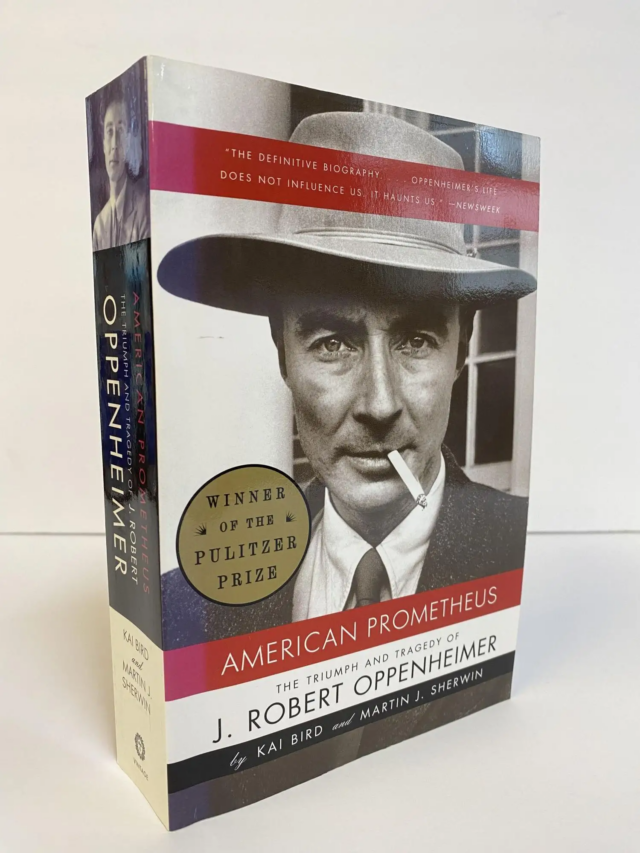American Prometheus
Started Sept. 20. Finished Oct. 17. Nearly 600 pages (more for the notes and bibliography)!!!
I have not seen Oppenheimer (the movie) but now I want to! I really want to record my thoughts about the book first, however.

The first thing I want to say, without meaning to overblow anything, is that this is one of the best books I have ever read. And most of the books I have read in my life are in this genre: American history (though this is technically a biography).
I absolutely love the writing style of Kai Bird and Martin Sherwin. How two authors so seamlessly put together a book I do not know!?! Their research is meticulous. They are so matter of fact and relatively balanced in their interpretation of their very complex subject. Oppenheimer, if I am to believe these wonderful authors, was an incredibly layered person. I found him absolutely fascinating. That doesn’t mean that I love him; I take my cue from authors who clearly respect him but are honest and candid about his good and bad aspects. I will say, though, that I cried when he died, fittingly, at the end of the book. I was sitting in my chiropractor’s office waiting for him to come in. I think I was crying because the story was over.
My purpose here is not to review Oppenheimer’s life – read the book for that. It’s to talk about how to incorporate history into biography, successfully. The subject of a biography is usually both a reflection of their times and a shaper of their times. The best subject of a biography is also someone who grows and changes. Static subjects are boring.
Oppenheimer checks all the boxes. He came of age as a scientist near the dawn of quantum physics. He used his skills – especially of integrating other people’s work – to manage a large project (the creation of the first atomic bomb) driven by his desire to defeat the Nazis. But his true imprint lay in his attitude toward the burgeoning nuclear arms race after the war. And in his openness to new ideas across so many disciplines, not just science. So, yes, a kind of renaissance man.
What would his story have been without the context of the cold war? What would this book be without that background? It would be flat: A smart guy builds a world-changing tool and goes on to worldwide acclaim.
The full story is how Oppenheimer, a former leftist, or fellow traveller, got trapped in the cold war “purges” during the McCarthy-Hoover era. The genius of this book is how it builds to that climax so expertly, by charting how so many of his moves and those of his political enemies eventually led to the ‘trial’ that saw him lose his security clearance.
Though this book was published in 2006 – pre-Trump (almost a different world) – it is so resonant in today’s insanely polarized climate. Democracy and the civil society need to be protected. Nations need to work toward not just diplomacy, but openness and a shared purpose: protecting people. Oppenheimer wasn’t a perfect person; he made many mistakes, had difficult qualities, helped create a deadly weapon. In this book, however, he comes across as someone of purpose with a wider vision.
We can all use more of that quality, especially people serving in our governments.